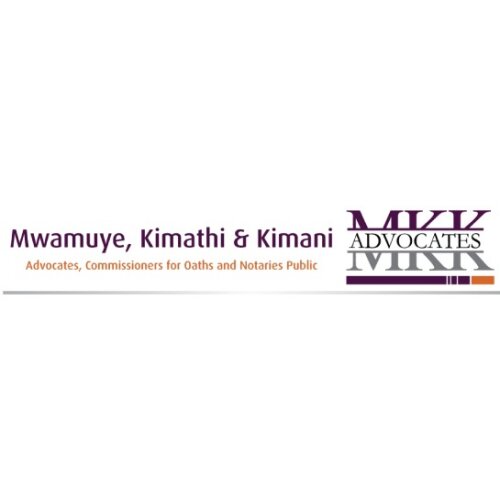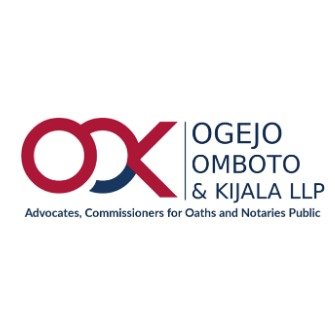Best Project Finance Lawyers in Kisumu
Share your needs with us, get contacted by law firms.
Free. Takes 2 min.
List of the best lawyers in Kisumu, Kenya
About Project Finance Law in Kisumu, Kenya
Project finance refers to the legal and financial structuring of large-scale infrastructure or industrial projects, such as energy plants, roads, ports, or housing developments, where the project's revenues and assets serve as collateral for the financing. In Kisumu, Kenya, project finance is an increasingly important field as the city undergoes rapid development and infrastructure improvements to meet the needs of a growing population and economy. The legal framework in Kenya provides mechanisms for both public and private entities to participate in these projects, attracting local and international investors.
Why You May Need a Lawyer
Securing a lawyer who is experienced in project finance can be crucial for several reasons. Common situations where legal expertise is necessary include negotiating contract terms, conducting due diligence on regulatory requirements, securing permits and approvals, structuring project companies, resolving disputes, and ensuring compliance with local and international investment laws. A lawyer can also assist with environmental impact assessments, land acquisition issues, intellectual property rights for new technologies, risk management, and safeguarding your financial interests throughout the project's lifecycle. Whether you are an investor, contractor, government entity, or developer, legal counsel ensures your project progresses smoothly and lawfully.
Local Laws Overview
In Kisumu, project finance is governed by a range of laws and regulations at the national and county levels. Some of the key legal frameworks include the Public Private Partnership Act, the Public Procurement and Asset Disposal Act, the Land Act, the Companies Act, and the Environmental Management and Coordination Act. These laws outline how projects can be initiated, how contracts are awarded, risk allocation, financing options, and environmental and social safeguards. Additionally, Kisumu County has its specific regulations and development policies that must be complied with, especially when projects affect community land, water bodies, or other local resources.
Frequently Asked Questions
What is project finance and how does it differ from traditional financing?
Project finance is a method of funding where the financing is secured by the project's own assets and future revenue rather than the general assets or creditworthiness of the project sponsors. This is different from traditional corporate finance, which relies on the overall financial strength of the borrowing company.
Who are the typical participants in a project finance transaction?
Participants usually include the project sponsors or developers, lenders (such as banks or investment funds), government agencies, contractors, suppliers, and sometimes export credit agencies or multilateral institutions.
Which sectors commonly use project finance in Kisumu?
Major sectors include energy (especially renewable energy), transport infrastructure, water projects, commercial real estate, hotels, and industrial developments.
What kind of legal documents are needed in a project finance deal?
Key documents often include loan agreements, security documents, concession or license agreements, engineering and construction contracts, power purchase agreements, shareholder agreements, and environmental compliance certificates.
What role does the public sector play in project finance in Kisumu?
The public sector can act as an initiator, regulator, facilitator, or even a partner in public-private partnerships. Government agencies may provide guarantees, approvals, or direct investment into projects that serve the public interest.
What are the main risks associated with project finance?
Risks can include construction risk, operational risk, market risk, legal and regulatory risk, environmental risk, and political risk. Lawyer involvement helps to identify, allocate, and mitigate these risks through contractual and legal mechanisms.
How does land acquisition work in project finance projects?
Land acquisition must comply with Kenya's land laws, including community rights and compensation requirements. Due diligence is crucial to confirm clear land title and resolve any disputes before proceeding with the project.
Are international investors allowed to participate in project finance in Kisumu?
Yes, Kenya encourages foreign investment in infrastructure and development projects, but compliance with licensing, tax regulations, and any sector-specific rules is required.
What environmental and social considerations are required?
Projects must undergo Environmental and Social Impact Assessments under Kenyan law. Community engagement and mitigation of negative impacts are mandatory for project approval.
How do I resolve disputes during or after project implementation?
Dispute resolution mechanisms, usually specified in the contracts, may include negotiation, mediation, arbitration, or litigation. Many contracts prefer arbitration, which can be local or international depending on the parties' agreement.
Additional Resources
- The Public Private Partnerships Directorate (Kenya) - Kisumu County Government: Department of Trade, Energy, and Industrialization - Capital Markets Authority of Kenya - Kenya Investment Authority (KenInvest) - Kenya Law Reports for access to legislation and case law - The National Environment Management Authority (NEMA) for environmental compliance - Law Society of Kenya for finding qualified legal practitioners
Next Steps
If you are considering a project finance venture in Kisumu, Kenya, your first steps should include identifying the type of project, understanding preliminary regulatory requirements, and consulting a qualified project finance lawyer. Prepare a list of your goals, investment capacity, and any known obstacles. Seek a lawyer who has experience not only in project finance but also in Kisumu-specific regulations and community contexts. Request a legal consultation to assess the feasibility of your project, compliance risks, and appropriate financing structures. Staying proactive and informed can help you navigate complex legal landscapes and contribute to a successful project outcome.
Lawzana helps you find the best lawyers and law firms in Kisumu through a curated and pre-screened list of qualified legal professionals. Our platform offers rankings and detailed profiles of attorneys and law firms, allowing you to compare based on practice areas, including Project Finance, experience, and client feedback.
Each profile includes a description of the firm's areas of practice, client reviews, team members and partners, year of establishment, spoken languages, office locations, contact information, social media presence, and any published articles or resources. Most firms on our platform speak English and are experienced in both local and international legal matters.
Get a quote from top-rated law firms in Kisumu, Kenya — quickly, securely, and without unnecessary hassle.
Disclaimer:
The information provided on this page is for general informational purposes only and does not constitute legal advice. While we strive to ensure the accuracy and relevance of the content, legal information may change over time, and interpretations of the law can vary. You should always consult with a qualified legal professional for advice specific to your situation.
We disclaim all liability for actions taken or not taken based on the content of this page. If you believe any information is incorrect or outdated, please contact us, and we will review and update it where appropriate.














